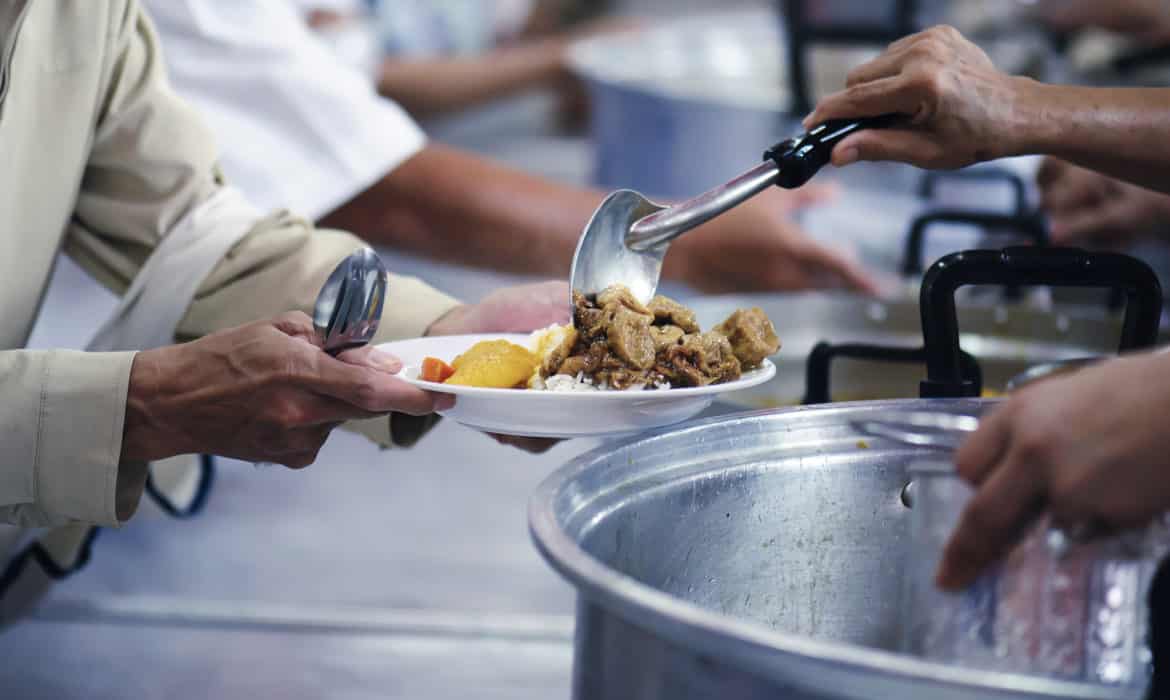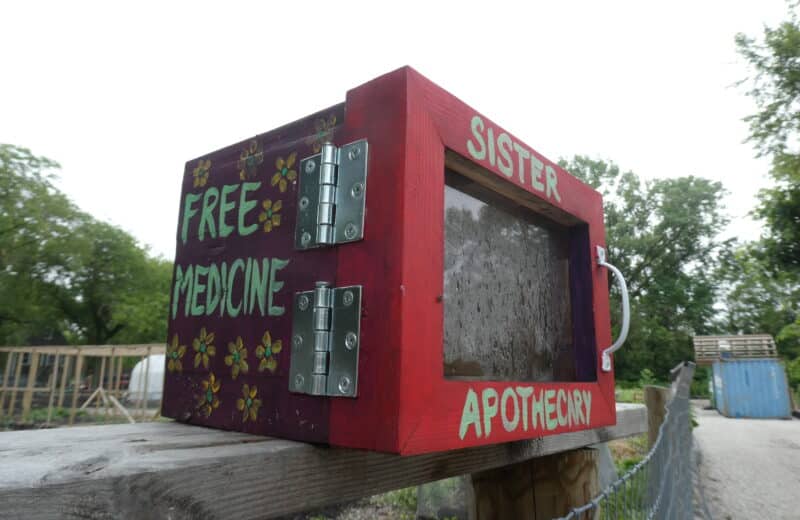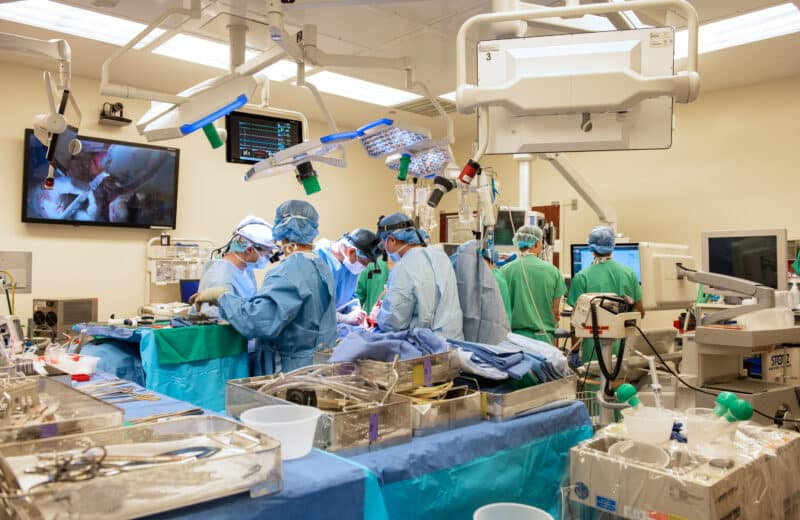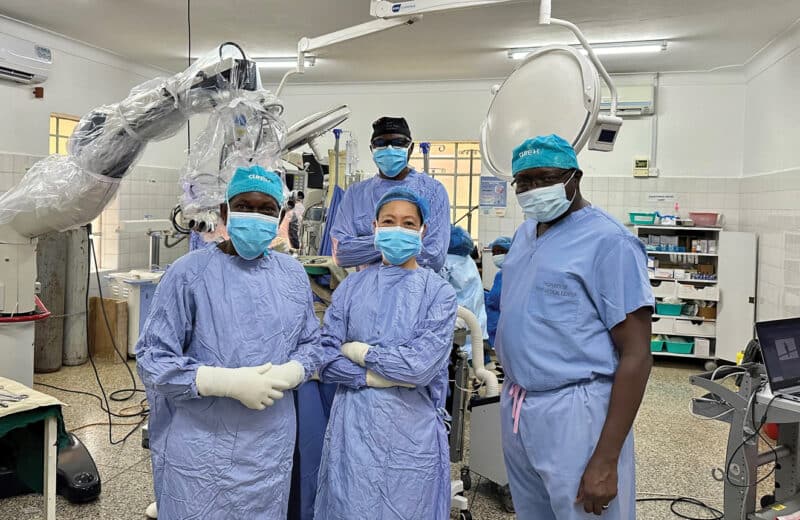Feeding the hungry across the country is a top priority — and now it’s all hands on deck. As Covid-19 continues to cripple the economy and many people’s livelihoods, an increasing number of Americans are going hungry.
In the U.S., food insecurity has doubled overall and tripled in households with children during the ongoing pandemic, according to Northwestern University’s Institute for Policy Research. With school lunch programs less accessible to children due to school closures, there are almost 14 million children in the U.S. who are not getting enough to eat every day.
As a result, the Supplemental Nutrition Assistance Program (SNAP), the nation’s largest food assistance program for low-income people — grew by 17% from February to May 2020, three times faster than in any previous three-month period. Local food pantries are also experiencing surging numbers of people who need food.
With so many Chicagoans living in economic hardship, more people are coming to food pantries than ever before, says Jennie Hull, chief program officer at Lakeview Pantry, one of Chicago’s largest and longest-operating food pantries.
With many Chicagoans out of work and children not receiving free breakfast and lunch at Chicago Public Schools (though pickup options are available), the need for food has increased dramatically. “We’ve seen a 400% increase across all four of our locations from pre-pandemic times,” Hull says.
Lakeview Pantry, which has been in service for 50 years, added a new warehouse facility to pack and ship food to distribution sites due to the increase in food insecurity across the Chicago area. Food pantries typically have service area boundaries, but Lakeview Pantry has expanded its reach because of the pandemic.
“With every demographic exploding, we used to only serve a specific area, but now we service all over Chicagoland,” Hull says.
In one visit, a client can get 80 to 90 pounds of food per household for the month, depending on the size of the household. Clients can come once a month for their main food distribution, with additional weekly visits for produce and bread.
The pantry receives food for distribution from the Greater Chicago Food Depository, as well as excess food — what Hull refers to as “food rescue” — that it collects from grocery stores and other partners across Chicago.
Corporate attention to hunger
The increasing food insecurity is cause for concern, and large organizations are mobilizing their efforts, both locally and nationally, to get food — and necessary nutrition — to people in need.
The Chicago-based Academy of Nutrition and Dietetics recently held its annual Food and Nutrition Conference & Expo (FNCE) virtually in October. Food insecurity was a critical topic on the agenda. Food manufacturers highlighted their grassroots efforts in local communities to tackle food insecurity through working with national hunger-relief organizations.
Kellogg was one of those companies. “The global issue of food insecurity is at an all-time high due to the pandemic,” says Stephanie Slingerland, senior director of philanthropy and social impact at the Kellogg Company. To combat that insecurity, Kellogg regularly provides food donations and partners with organizations such as Feeding America, No Kid Hungry, and the United Way to expand school breakfast, summer hunger, and other feeding programs that benefit Chicago families.
Hunger relief efforts
Although individual food drives can bring in much-needed food for pantries, financial contributions are a huge help. Just one dollar provides eight meals, Hull says.
Relief organizations, such as Chicago Community Trust’s Covid-19 Response Fund and the United Way of Metro Chicago, partner with companies like Kellogg “to help provide flexible resources to community-based organizations in Cook and DuPage counties that supply essential support to the households whose incomes are most impacted by coronavirus,” Slingerland says. Kellogg has donated more than $18 million in global COVID-19 hunger relief efforts to date.
With the pandemic affecting the holiday season, organizations like United Way of Metro Chicago are getting creative to bring cheer to people experiencing food insecurity. This year, the organization is hosting a festive drive-thru event, Uniting for the Holidays 2020. The effort will take place in six suburban locations from mid-November to mid-December, distributing a special meal and gifts to thousands of families across Chicagoland.
Ways you can help
Chicago-area organizations that fight food insecurity need your time and financial support this holiday season. Sign up to volunteer or donate today.
- Lakeview Pantry offers pre-packed bags of healthy groceries, a weekly produce pick-up, an online market, and a delivery service for homebound residents. Visit lakeviewpantry.org to get food or to volunteer to pack and distribute food.
- Greater Chicago Food Depository is Chicago’s primary food bank and a hub for more than 700 food pantries, soup kitchens, and shelters across Chicago and Cook County. Visit chicagofoodbank.org for find out about its new Nourish Campaign, as well as for volunteer, event, donation, and programming opportunities.
- Feeding Illinois, the association for Feeding America food banks that serve Illinois, has a network of more than 2,400 food pantries, shelters, and soup kitchens statewide. Donate to this important cause at feedingillinois.org.













